Here are a few fun words all ending with a り. These onomatopoeia are adverbs (modifies verbs, adjectives, or other adverbs) or する nouns. If you are a Makoto+ member, here's your bonus download.
Learn Japanese Vocabulary Digital Bundle
For more on fun sound words as well as Japanese proverbs and idioms, check out our Japanese Vocabulary instant digital download booster pack for half off savings. Exclusively at TheJapanShop.com (or sister store!)
Bonus Download
Before we get started, if you are a Makoto+ member (any level), great news! You can download bonus content for this lesson. Download a 12 page PDF that covers 50 more of these special words. The download also includes all the example sentences sound files, and a 100 card Anki flashcard deck with pitch accent diagrams and sound. Click here if you are a member. Click here if you aren't a member to learn more about our Makoto+ membership program. It's cheap in price but not in content!
About these Words
This collection of words are hard to classify neatly other than:
- They all are made of four hiragana,
- End in ~り,
- Most include a small っ, and
- Most are onomatopoeic
They are adverbs, but not always. Some can be adjectives or する verbs. びっくり (to be surprised) is usually a する verb, for example.
The と after Onomatopoeic Words
You’ll notice a と placed after some of the words in the example sentences. This is because these words are onomatopoeic in nature and onomatopoeic adverbs are often followed by the と particle.
This doesn’t change the meaning, but gives emphasis to the word.
Some words sound better with the と, some sound better without it, and sometimes it is just added for emphasis. Unfortunately, this is just something you'll have to get a feel for through experience.
Sound as Meaning
Onomatopoeic sounds in Japanese convey meaning much more so than in English. Keeping this in mind might help remember these words. Also, the small っ often describes something that comes and goes suddenly. For example:
- さっ words tend to emphasize “speed” or “nimbleness”
- ばっ words are sudden and explosive
- きらっ words flash brightly
Ready to get started? Let's learn these 12 very useful ~り words. Spend time working through the example sentences to understand how they are used.
びっくり To Be Surprised
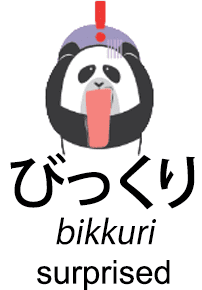
急に、後ろから肩をたたかれたので、びっくりした。
Someone suddenly tapped me on the shoulder, surprising me.
Vocabulary
がっかり To Be Disappointed

テストの点数が悪かったので、とてもがっかりした。
This week’s test score was bad, therefore I was deeply disappointed.
Vocabulary
こっそり Stealthily
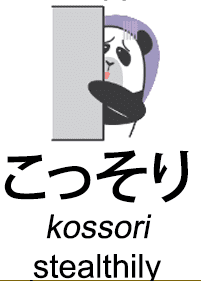
こっそりと家をのぞいている人がいたので、警察に電話した。
Someone was sneaking around the house, so I called the police.
Vocabulary
のんびり In a Relaxed Manner

今週は忙しかったので、明日はのんびりしたい。
This week was busy so tomorrow I will take it easy.
Vocabulary
そっくり Exactly Like
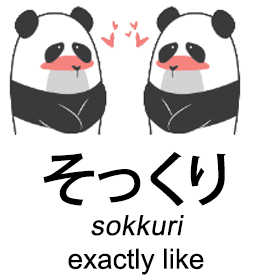
あの二人は、双子なので顔がそっくりだ。
Those two, being twins, look exactly the same.
Vocabulary
うっかり Carelessly
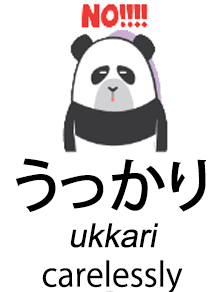
買い物しようとスーパーに来たが、うっかり財布を忘れたことに気が付いた。
I went to the supermarket wanting to go shopping when I realized I had carelessly forgotten my wallet.
Vocabulary
たっぷり In Plenty
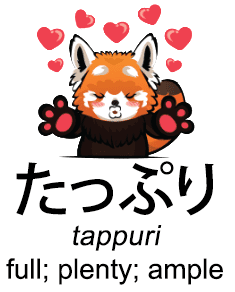
彼は、たっぷりと眠った。
He slept plenty.
Vocabulary
ちょっぴり A Tiny Bit

あの子は、野菜をちょっぴりしか食べなかった。
That child only ate a little bit of his/her veggies.
Vocabulary
ゆっくり Slowly
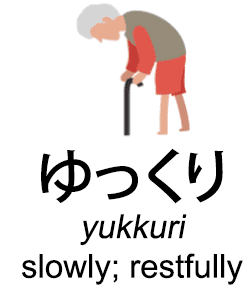
動物園で、ライオンがゆっくりと、おりの中を歩いていた。
At the zoo, the lion slowly walked around his cage.
Vocabulary
うっとり With Rapt Attention
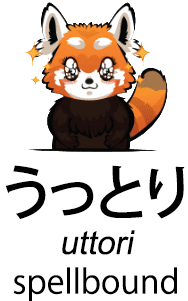
彼女は、大好きな俳優の写真を見てうっとりとしている。
She looked at a photo of an actor she likes with rapt attention.
Vocabulary
はっきり Clearly
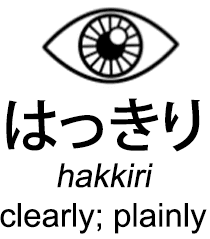
眼鏡をとりかえたら、すべてのものがはっきりと見えるようになった。
When I changed glasses, I was able to see everything clearly.
Vocabulary
すっきり Refreshingly
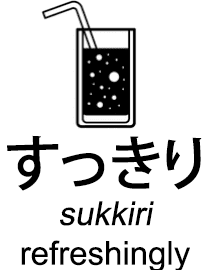
掃除をしたら、家の中がすっきりした。
After cleaning, the whole house was pleasantly refreshed.
Vocabulary
Want more? Members get 50 more words!
Bonus Download
If you are a Makoto+ member (any level), great news! You can download bonus content for this lesson. Download a 12 page PDF that covers 50 more of these special words. The download also includes all the example sentences sound files, and a 100 card Anki flashcard deck. Click here if you are a member. Click here if you aren't a member to learn more about our Makoto+ membership program. It's cheap in price but not in content!







